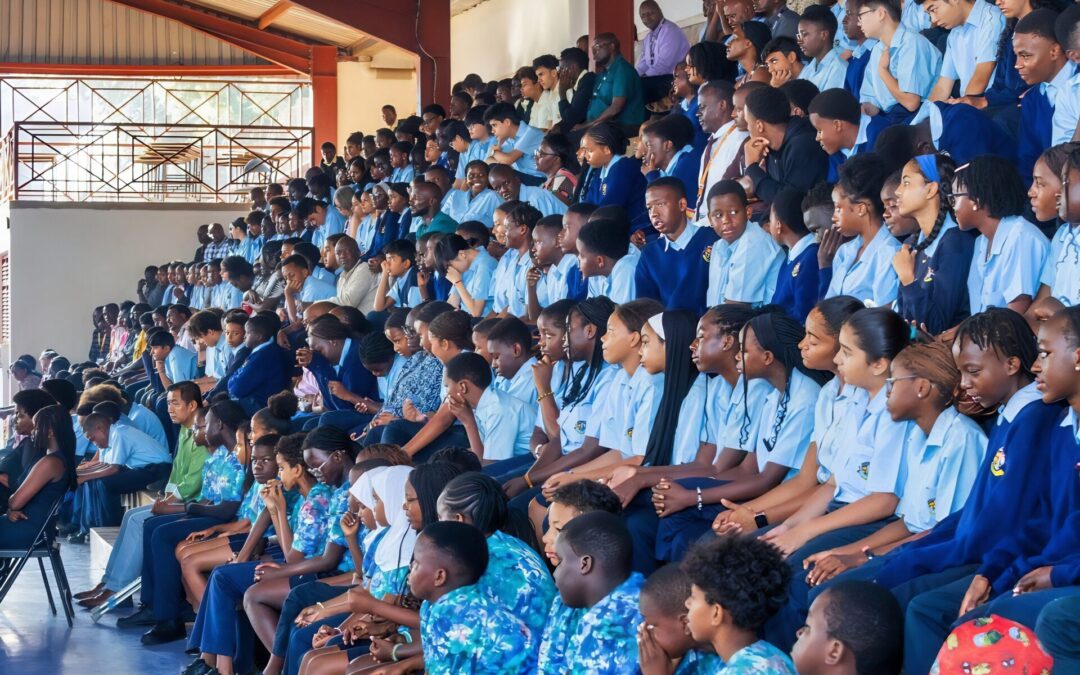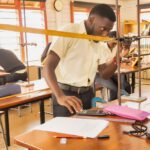Building Democratic Values: How Rainbow International School Prepares Students for Leadership and Civic Responsibility
In the heart of Kampala, amidst the rolling hills and vibrant culture of Uganda, lies a beacon of hope for the future—Rainbow International School. On a crisp morning this week, the school’s corridors buzzed with anticipation as students prepared to cast their votes in one of the most eagerly awaited elections of the year: the selection of its Head Boy and Head Girl for 2025. This wasn’t just another routine event; it was an exhilarating celebration of democracy, leadership, and youthful ambition. As candidates delivered impassioned speeches during the Secondary Assembly, articulating their visions for the school’s growth and unity, the air was electric with possibility. For these young leaders-in-the-making, this election was more than just a popularity contest—it was a stepping stone towards shaping not only their own futures but also those of their peers.
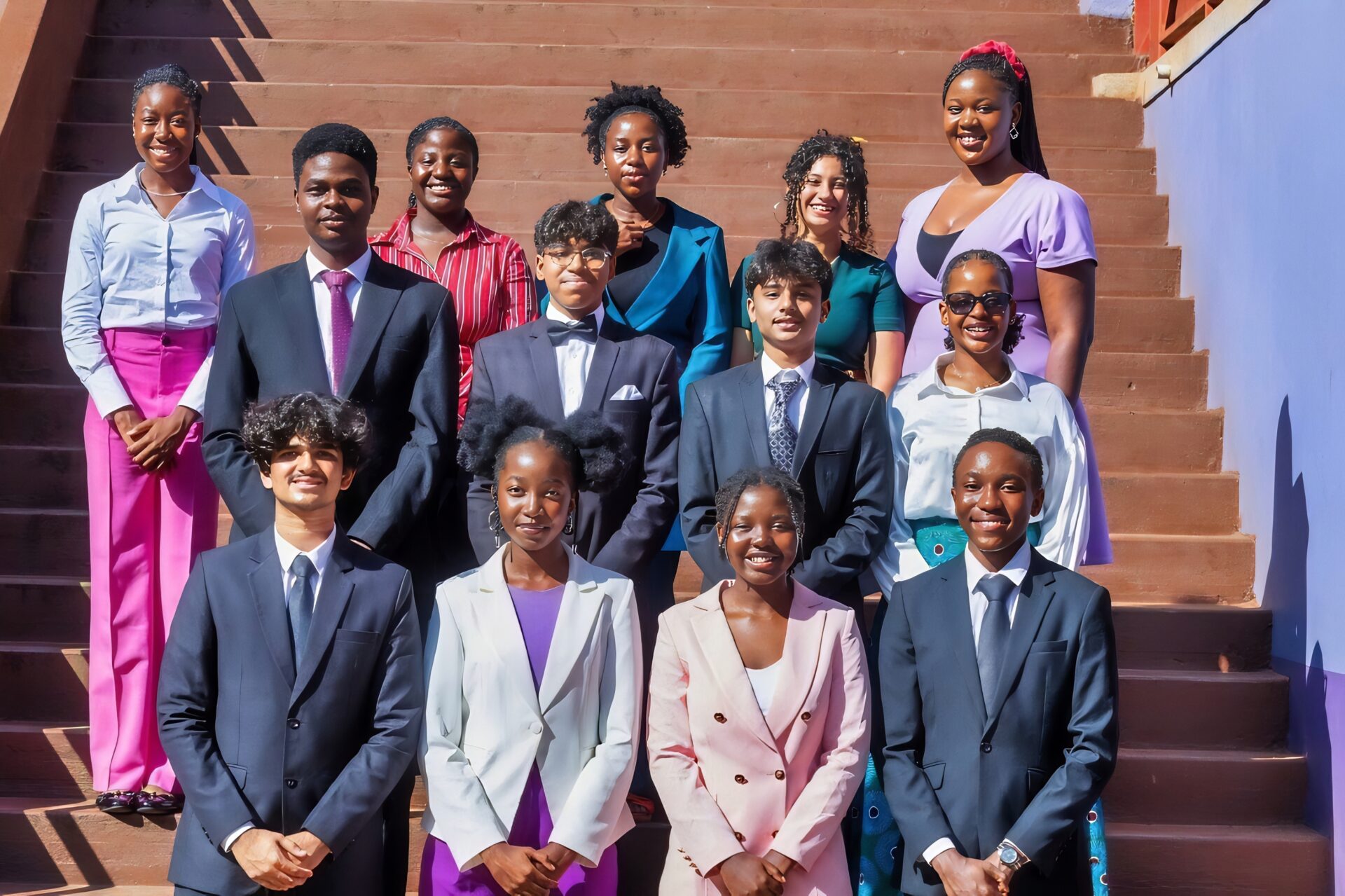
This article delves into the significance of student leadership programmes like the one at Rainbow International School, exploring how they empower young people to become confident decision-makers, foster community spirit, and prepare them for life beyond the classroom. Through real-world examples and expert insights, we’ll examine why initiatives such as these are vital in nurturing tomorrow’s leaders while addressing potential challenges that may arise along the way.
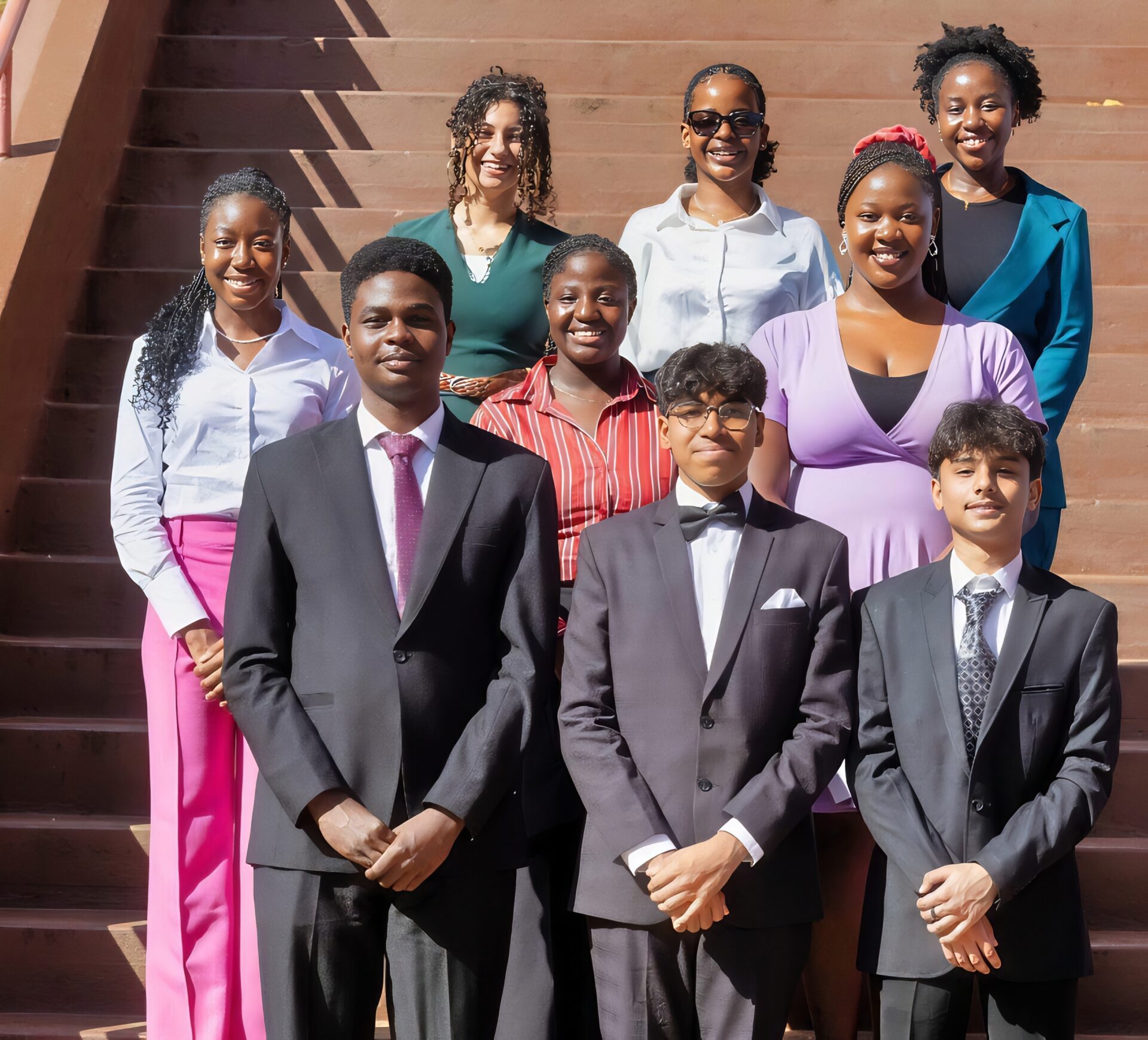
The Importance of Student Leadership in Schools
At Rainbow International School Uganda, the recent election for Head Boy and Head Girl served as a powerful reminder of the transformative potential that student leadership holds. In a country where education is often seen as a pathway to personal and national progress, programmes like these are not merely extracurricular activities—they are vital tools for shaping well-rounded individuals who can contribute meaningfully to their communities. According to educators and child development specialists, structured leadership roles provide students with opportunities to hone essential life skills that extend far beyond the classroom, equipping them for success in both their academic journeys and future careers.
Confidence: Building Self-Assurance Through Action
One of the most immediate benefits of participating in leadership initiatives is the boost in confidence. For many students, standing before an audience of peers during assemblies or addressing classmates during campaign speeches represents a significant challenge. The act of articulating one’s vision, fielding questions, and engaging with diverse groups fosters a level of self-assurance that cannot be cultivated through traditional classroom learning alone.
In the Ugandan context, where public speaking may not always be prioritised in standard curricula, such experiences hold immense value. Students learn to overcome stage fright, refine their communication skills, and present themselves authentically—all qualities that will serve them well in higher education and professional settings. At Rainbow International School, candidates were encouraged to express their ideas clearly and persuasively, instilling in them the belief that their voices matter. This newfound confidence doesn’t just benefit the individual; it also inspires others around them, creating a ripple effect of empowerment throughout the school community.
Responsibility: Learning Accountability and Initiative
Beyond confidence, responsibility is another cornerstone of leadership development. Once elected, Head Boys and Girls take on substantial duties that require organisation, accountability, and initiative. From overseeing committees to mediating conflicts among peers, these young leaders quickly learn the importance of fulfilling obligations and making thoughtful decisions.
For example, at Rainbow International School, past leaders have successfully spearheaded charity fundraisers to support local orphanages, organised environmental clean-up drives in Kampala, and even coordinated inter-house sports tournaments that brought the entire school together. These projects demand careful planning, teamwork, and perseverance—skills that are transferable to virtually any career path.
Research supports this notion. A study conducted by the British Educational Leadership Foundation revealed that students engaged in leadership roles demonstrated a 40% improvement in organisational skills compared to those who did not participate. Furthermore, these students exhibited greater resilience when faced with challenges, showing an ability to adapt and problem-solve effectively. Such attributes are particularly valuable in Uganda, where young people must navigate complex social and economic landscapes to thrive.
Catalysts for Change: Inspiring Broader Impact
The influence of student leadership extends beyond individual growth—it has the power to catalyse meaningful change within schools and wider society. Consider the inspiring story of Sarah Njoroge, a former Head Girl at an international school in Nairobi. During her tenure, she spearheaded a mental health awareness campaign aimed at reducing stigma and providing resources for struggling students. What began as a small initiative within her school eventually gained national recognition, prompting policy discussions and collaborations with mental health organisations across Kenya.
Similarly, at Rainbow International School Uganda, students have consistently used their platforms to advocate for issues close to their hearts. Recent campaigns have included advocating for improved sanitation facilities, promoting gender equality, and raising funds for underprivileged children in rural areas. These efforts underscore the idea that leadership is not just about holding a title—it’s about using one’s position to drive positive transformation. By empowering students to identify problems and propose solutions, schools like Rainbow International foster a culture of active citizenship that prepares young people to address real-world challenges.
Leadership as a Lifelong Skill
Ultimately, the importance of student leadership lies in its ability to prepare young people for life beyond school. In Uganda, where youth unemployment remains a pressing issue, equipping students with practical skills and a sense of agency is crucial. Leadership roles teach students how to collaborate with others, manage time efficiently, and think critically—qualities that employers highly value. Moreover, they instil a sense of purpose and responsibility, encouraging students to give back to their communities long after they’ve left the school gates.
As Rainbow International School Uganda continues to nurture its next generation of leaders, it reinforces the belief that investing in student leadership is an investment in the nation’s future. By fostering confidence, responsibility, and a commitment to service, the school ensures that its students are not only prepared for the challenges ahead but are also poised to lead the way in creating a brighter, more inclusive tomorrow.
A Platform for Voice and Representation
At Rainbow International School Uganda, the recent election for Head Boy and Head Girl was not just a contest of charisma or popularity—it was a powerful exercise in representation. The candidates were more than aspirants for prestigious titles; they became advocates for causes that resonated deeply with their peers. From proposing upgrades to the school’s library facilities to championing enhanced extracurricular programmes, each candidate sought to address issues that mattered to the student body. This focus on advocacy highlights how student leadership can serve as a vital platform for amplifying young voices and fostering a sense of ownership within the school community.
Advocacy That Reflects Student Concerns
In a diverse setting like Uganda, where students come from varied backgrounds and experiences, ensuring that everyone feels heard is paramount. At Rainbow International School, candidates used their campaigns to highlight pressing concerns—such as improving access to mental health support, creating safer spaces for open dialogue, and addressing infrastructural gaps. These initiatives demonstrated an understanding of the unique challenges faced by their peers, making their campaigns relatable and impactful.
For instance, one candidate proposed establishing a peer mentoring system to help younger students adjust to secondary school life—a suggestion born out of personal experience navigating the transition themselves. Another advocated for expanding the range of extracurricular activities to include cultural clubs celebrating Uganda’s rich heritage, thereby promoting inclusivity and pride in local traditions. By aligning their platforms with real student needs, these candidates reinforced the idea that leadership is fundamentally about service—not self-aggrandisement.
Fostering Ownership and Accountability
The act of giving students a platform to voice their ideas has profound implications for their engagement with the school. When students see their concerns being addressed through tangible proposals, they develop a stronger sense of ownership over their environment. As one Year 10 voter aptly remarked, “It feels good knowing that someone my age is fighting for things I care about.” This sentiment captures the essence of what true representation means: it’s not merely about having leaders who look or sound like you but having leaders who genuinely understand and prioritise your interests.
This sense of ownership naturally leads to greater accountability. Students who feel invested in their school are more likely to take responsibility for its success, whether by participating actively in events, maintaining shared spaces, or supporting fellow classmates. At Rainbow International School, this culture of accountability is nurtured through leadership roles, which encourage students to think beyond themselves and consider the collective good.
Relatability Builds Trust and Collaboration
Another critical aspect of representation is relatability. When students see their leaders as peers who share similar aspirations, struggles, and dreams, trust flourishes. Unlike adults in authority positions, student leaders are uniquely positioned to empathise with the day-to-day realities of school life—from exam stress to navigating friendships. This relatability fosters an atmosphere of mutual respect and collaboration, breaking down barriers between different year groups and fostering unity across the school.
For example, during the campaign period, candidates held informal discussions with students from various classes, listening attentively to their feedback and incorporating it into their manifestos. These interactions not only helped build rapport but also encouraged younger students to engage more openly with the democratic process. One Year 7 student noted, “I never thought anyone would listen to what we have to say, but now I know our opinions matter.” Such reflections underscore the transformative power of representation in empowering even the youngest members of the school community.
Representation Beyond the School Gates
While the immediate impact of student representation is felt within the confines of Rainbow International School, its influence extends far beyond. In a country like Uganda, where youth constitute a significant portion of the population, instilling the value of representation early on is crucial for nurturing active citizens. By learning to advocate for themselves and others, students gain invaluable skills in diplomacy, negotiation, and consensus-building—all of which are essential for effective civic participation.
Moreover, when schools prioritise representation, they contribute to broader societal goals, such as promoting diversity, equity, and inclusion. For instance, some candidates at Rainbow International School highlighted the need for gender-balanced representation in leadership roles, echoing national conversations around women’s empowerment in Uganda. Others emphasised the importance of bridging socio-economic divides by ensuring equal access to resources and opportunities for all students. These discussions reflect a growing awareness among young people of their role in shaping a fairer, more inclusive society.
Conclusion: Voices That Matter
The emphasis on representation during Rainbow International School’s election process serves as a testament to the transformative potential of student leadership. By giving students a platform to articulate their ideas and advocate for change, the school not only empowers individuals but also strengthens the fabric of its community. Through relatable leaders who champion causes close to the hearts of their peers, trust and collaboration thrive, paving the way for a more united and engaged student body.
As Uganda continues to grapple with challenges ranging from educational inequality to youth unemployment, institutions like Rainbow International School play a pivotal role in preparing young people to lead with empathy, integrity, and vision. By fostering a culture of representation today, they ensure that tomorrow’s leaders will be equipped to tackle the nation’s most pressing issues while remaining steadfastly committed to the voices they represent.
Cultivating Democratic Values Among Youth
At Rainbow International School Uganda, the recent election for Head Boy and Head Girl was more than just a school tradition—it was a living laboratory for democracy. Beyond the vibrant campaign posters and impassioned speeches lay an invaluable opportunity to instil democratic values in young minds. In a nation like Uganda, where civic education is often overshadowed by other priorities, such initiatives are crucial in nurturing a generation of informed, engaged, and responsible citizens.
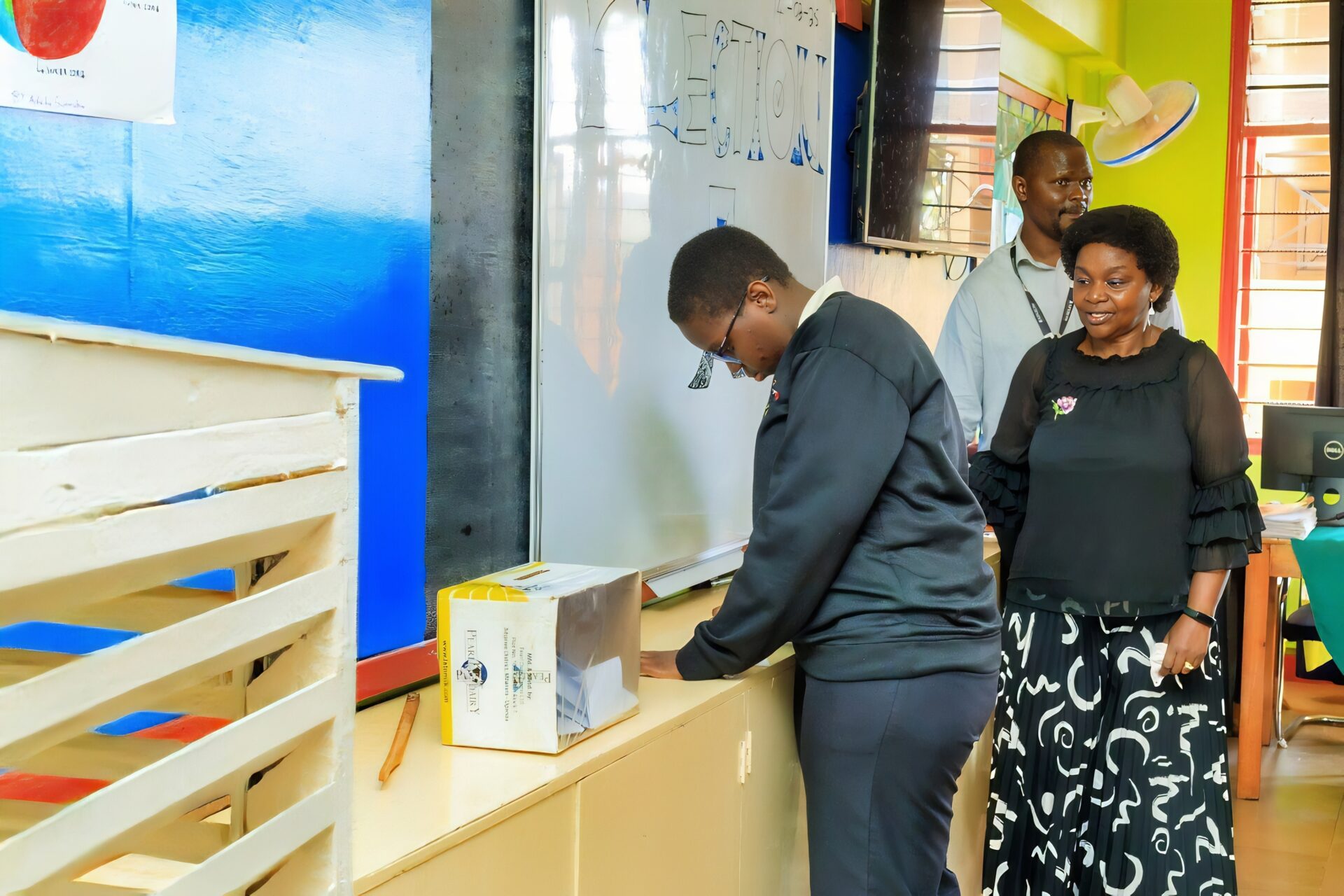
By participating in elections, students gain firsthand experience of democratic processes, learning lessons about civic duty, representation, and collective decision-making that will stay with them throughout their lives.
The Power of Participation: Learning Civic Responsibility
One of the most significant benefits of student elections is the way they introduce young people to the concept of civic responsibility. Voting is not merely an act of choosing a leader; it’s an exercise in understanding one’s role within a community. At Rainbow International School, students were encouraged to think critically about the candidates’ policies and how these aligned with the needs of the school. This process mirrors real-world elections, where voters must weigh options and make informed decisions based on what they believe will benefit society as a whole.
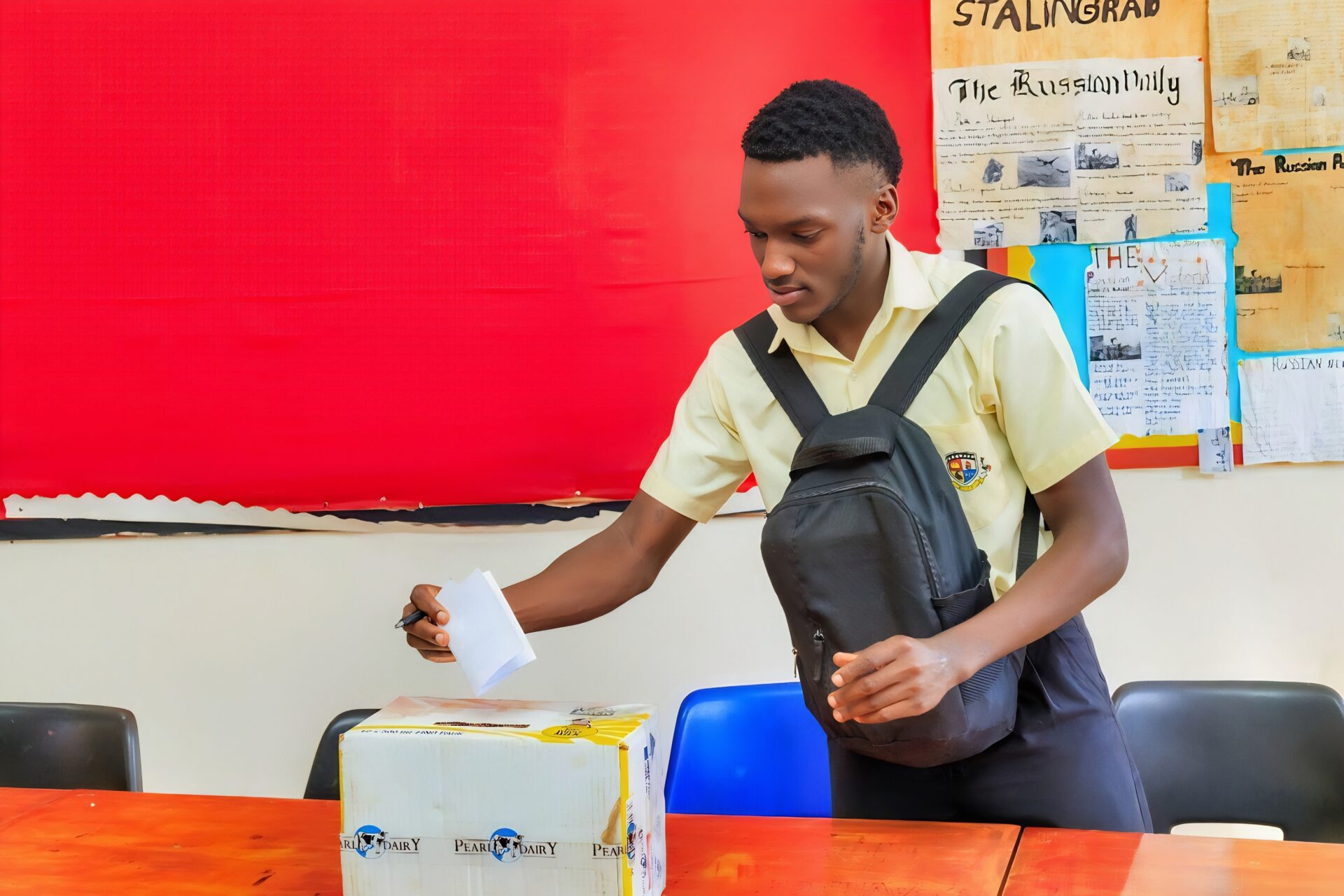
By casting their votes, students learned that their voices matter and that participation is key to shaping outcomes. For many, this was their first taste of what it means to be part of a democratic system—a lesson that holds particular relevance in Uganda, where voter apathy and disenfranchisement remain challenges in national politics. Early exposure to democratic practices helps demystify the electoral process, making it less intimidating and more accessible as students grow older.
Fostering Respectful Debate: Policies Over Personalities
While the benefits of student elections are undeniable, critics have raised valid concerns about potential drawbacks. Competitive elections at a young age could inadvertently foster unhealthy rivalries or cliques, detracting from the spirit of unity and collaboration that schools strive to promote. To mitigate these risks, Rainbow International School implemented measures to ensure that the focus remained on ideas rather than individuals. Candidates were coached to articulate clear policies and vision statements, emphasising substance over style.
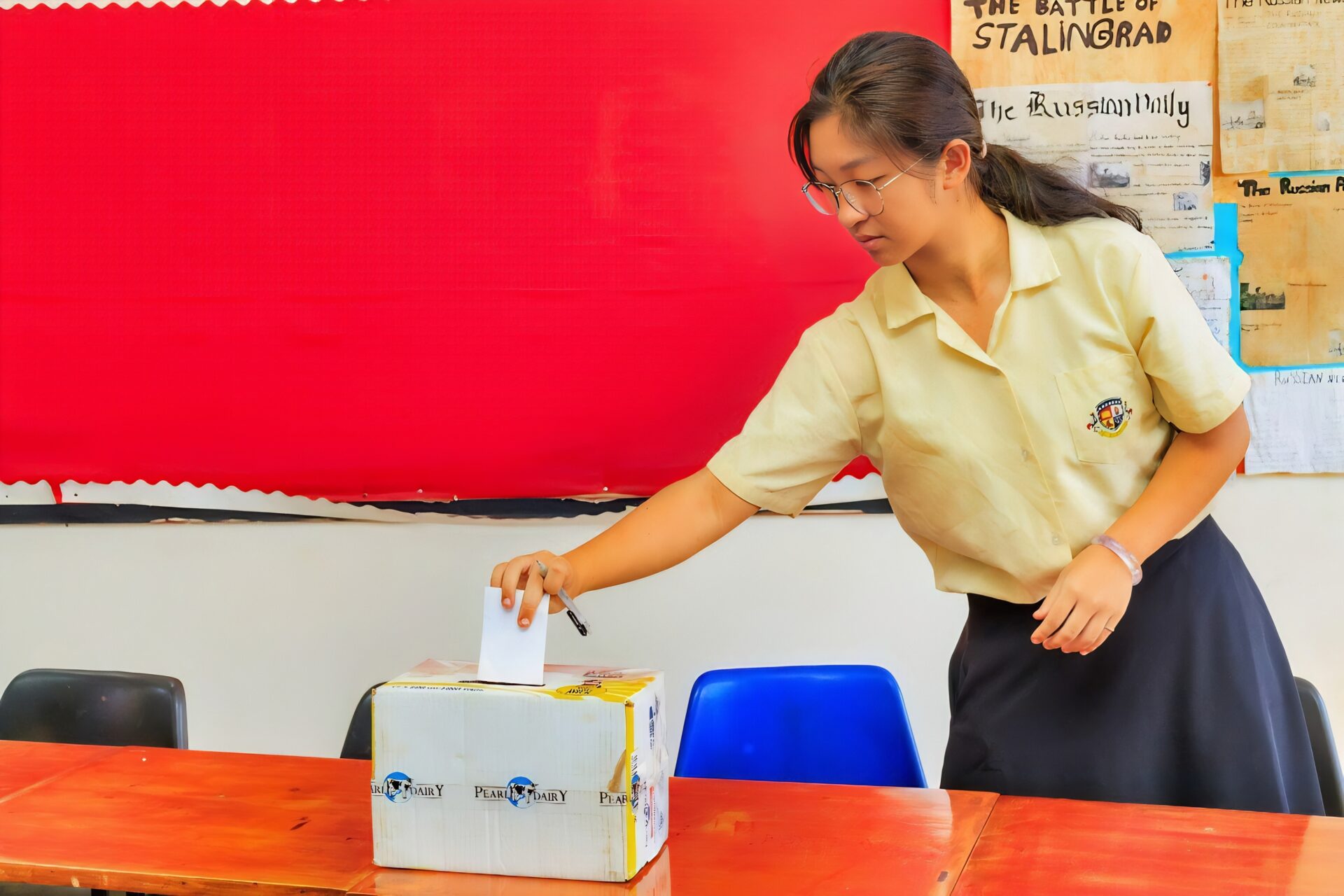
For example, instead of relying on popularity contests, campaigns centred around tangible proposals such as improving access to digital learning tools, enhancing mental health support services, or organising inter-house cultural festivals. Teachers and mentors played a pivotal role in guiding discussions, ensuring that debates remained respectful and constructive. These efforts helped create an environment where competition was healthy and ideas took precedence over personalities—a model that reflects the best aspects of democracy.
Bridging Divides: Promoting Unity Through Diversity
In a multicultural and multi-ethnic country like Uganda, fostering unity amidst diversity is essential. Student elections provide an ideal platform for bridging divides and promoting inclusivity. At Rainbow International School, candidates came from different backgrounds and year groups, yet they all shared a common goal: to serve their peers and improve the school community. This diversity underscored the importance of finding common ground and working collaboratively towards shared objectives—a principle that resonates deeply in Ugandan society.
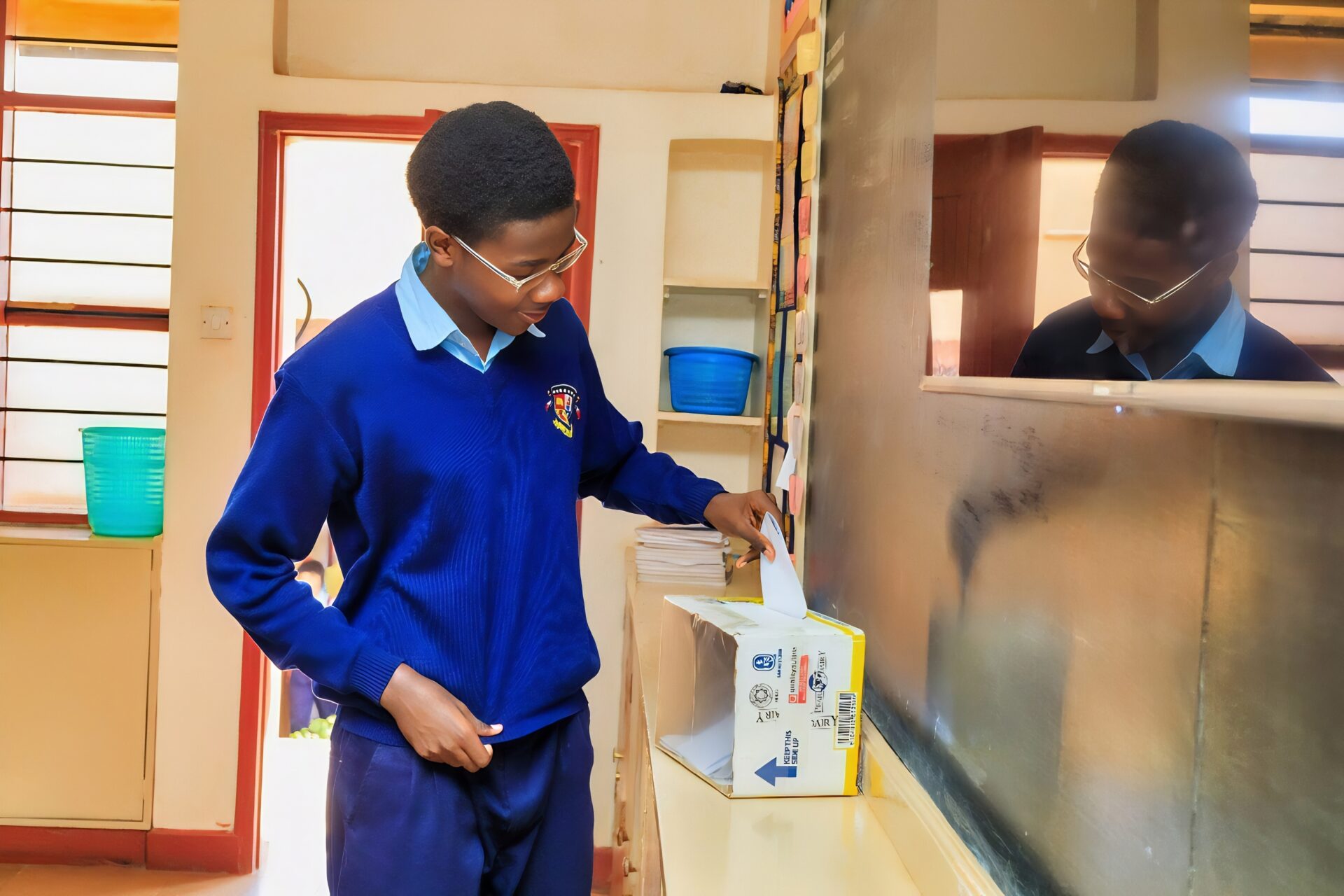
Moreover, the election process encouraged students to engage with perspectives different from their own. During campaign rallies and informal discussions, candidates listened to feedback from classmates across various age groups and socio-economic backgrounds. This exchange of ideas not only broadened their horizons but also reinforced the value of inclusivity in leadership. By embracing diverse viewpoints, students learned that democracy thrives when everyone feels represented and heard.
Building Resilience: Navigating Wins and Losses
Another critical aspect of cultivating democratic values is teaching students how to navigate both success and failure gracefully. Elections inevitably result in winners and losers, but the true measure of character lies in how participants handle the outcome. At Rainbow International School, losing candidates were celebrated for their courage and dedication, while those elected were reminded of their accountability to the student body.
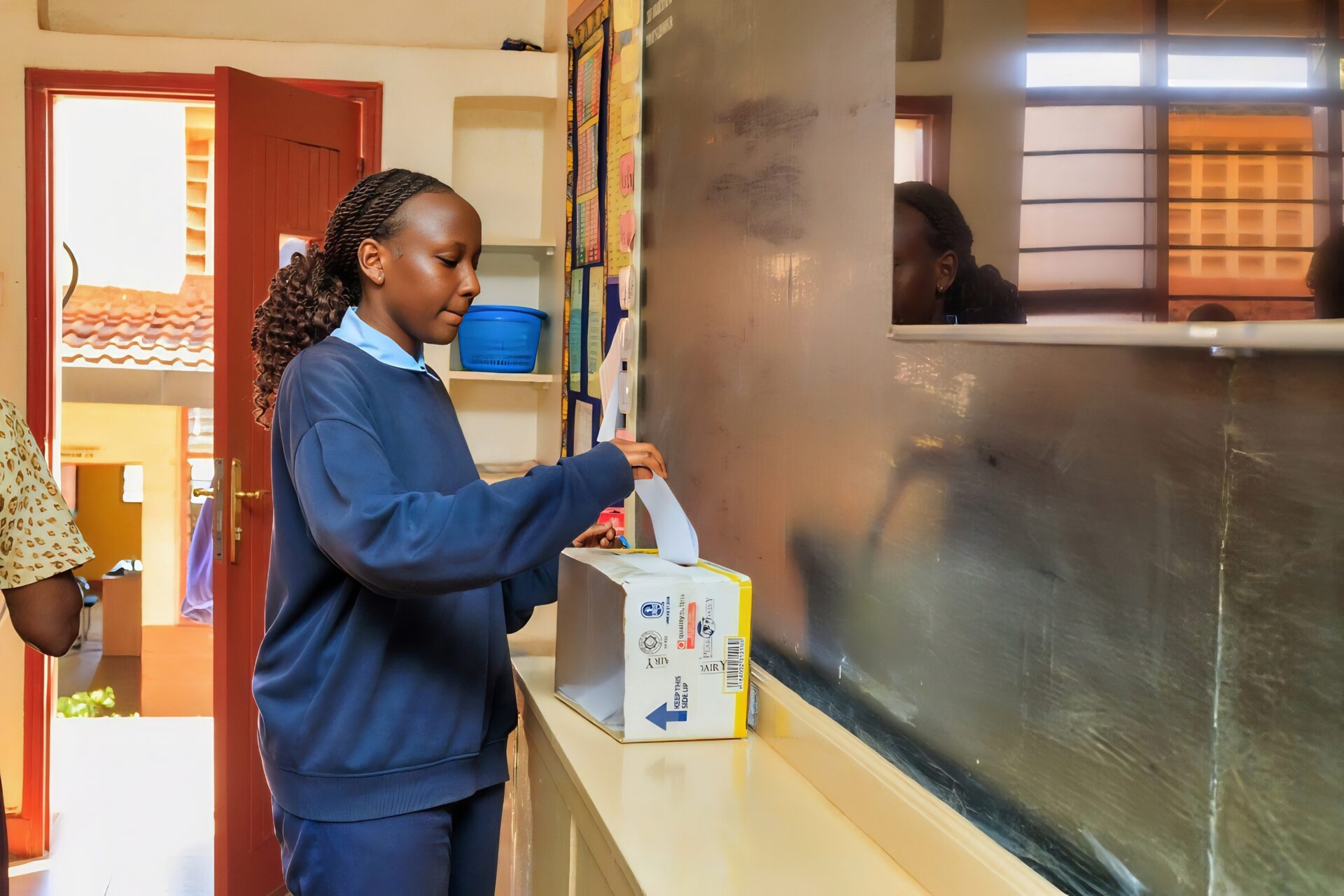
This approach mirrors the realities of democratic governance, where leaders must earn—and retain—the trust of their constituents. Similarly, those who do not win learn resilience and humility, qualities that are equally important in life. One candidate who narrowly missed the top spot reflected, “Even though I didn’t win, I’m proud of what I achieved. My ideas sparked conversations that might lead to change anyway.” Such reflections highlight the broader impact of the election process, which extends beyond individual victories to inspire collective progress.
Preparing for Active Citizenship
Ultimately, events like these are about preparing students to become active citizens. In Uganda, where youth constitute a significant portion of the population, empowering young people to understand and participate in democratic systems is vital for the nation’s future. By engaging in student elections, pupils develop skills such as critical thinking, negotiation, and consensus-building—all of which are essential for effective civic participation.
Furthermore, these experiences lay the groundwork for tackling larger societal issues. Many of the challenges facing Uganda today—such as corruption, inequality, and political instability—can be addressed through strong, principled leadership. Schools like Rainbow International play a crucial role in equipping students with the tools they need to confront these challenges head-on, armed with a deep appreciation for democratic principles.
Conclusion: Democracy Starts in the Classroom
The student election at Rainbow International School Uganda serves as a powerful reminder that democracy begins with education. By providing students with opportunities to participate in elections, advocate for policies, and engage respectfully with differing viewpoints, the school nurtures values that transcend the classroom. These lessons in civic duty, inclusivity, and resilience prepare students not only for academic success but also for meaningful contributions to their communities and the wider world.
As Uganda looks to its youth to drive positive change, institutions like Rainbow International School stand as beacons of hope. By cultivating democratic values among young people today, they ensure that tomorrow’s leaders will champion fairness, equality, and justice—a legacy that benefits us all.
Inspiring Unity and Community Engagement
At Rainbow International School Uganda, the recent election for Head Boy and Head Girl revealed something far more profound than just a competition for leadership—it was a celebration of unity and collaboration. The palpable sense of camaraderie that permeated the school during the election process highlighted how such events can serve as catalysts for bringing diverse groups together. In a multicultural and multi-ethnic setting like Uganda, fostering unity is not merely an aspiration; it is a necessity. By organising activities that bridge divides and promote inclusivity, student leaders play a pivotal role in strengthening the fabric of their school community—and by extension, society at large.
Building Bridges Across Differences
One of the most remarkable outcomes of the election was its ability to unite students from different year groups, backgrounds, and interests. At Rainbow International School, candidates campaigned across various classes and houses, engaging with peers they might not otherwise interact with regularly. This cross-pollination of ideas and perspectives helped break down barriers and foster mutual understanding. For instance, a Year 13 candidate collaborated with younger students to design campaign posters that reflected shared aspirations, while another worked with house captains to ensure their proposals addressed concerns specific to each group.
This spirit of inclusivity extended beyond the election itself. Past leaders at the school have consistently used their platforms to organise events that bring students closer together. Inter-house competitions, for example, are not just about winning trophies—they are opportunities for students to collaborate, strategise, and celebrate as a team. Similarly, cultural festivals allow students to showcase Uganda’s rich heritage, promoting pride in diversity while reinforcing a shared identity as members of the Rainbow International family.
Such initiatives remind us that unity does not mean uniformity. Rather, it is about celebrating differences while finding common ground—a lesson that resonates deeply in a country as diverse as Uganda.
Shared Experiences That Forge Lasting Bonds
The power of shared experiences cannot be overstated when it comes to building unity. Whether it’s cheering on classmates during a sports tournament or working together to clean up a local park, these moments create lasting bonds among participants. At Rainbow International School, past leaders have excelled in organising events that encourage teamwork and collective effort.
For example, one former Head Girl spearheaded a community service trip to a rural village near Kampala, where students volunteered at a primary school and helped construct a new classroom. This experience not only instilled a sense of social responsibility but also deepened connections among the participants, who returned to school with a renewed appreciation for their privileges and a commitment to giving back. Another initiative involved organising a “Unity Day,” where students wore traditional attire from different Ugandan tribes and participated in workshops celebrating the nation’s linguistic and cultural diversity. These activities fostered empathy and respect, breaking down stereotypes and encouraging meaningful dialogue.
Collective Pride in the Institution
When students feel connected to their school, they develop a sense of ownership and pride that transcends individual achievements. The election process at Rainbow International School underscored this principle by emphasising the importance of collective effort over personal glory. Regardless of who emerged victorious, every candidate contributed to shaping the school’s ethos of unity and collaboration.
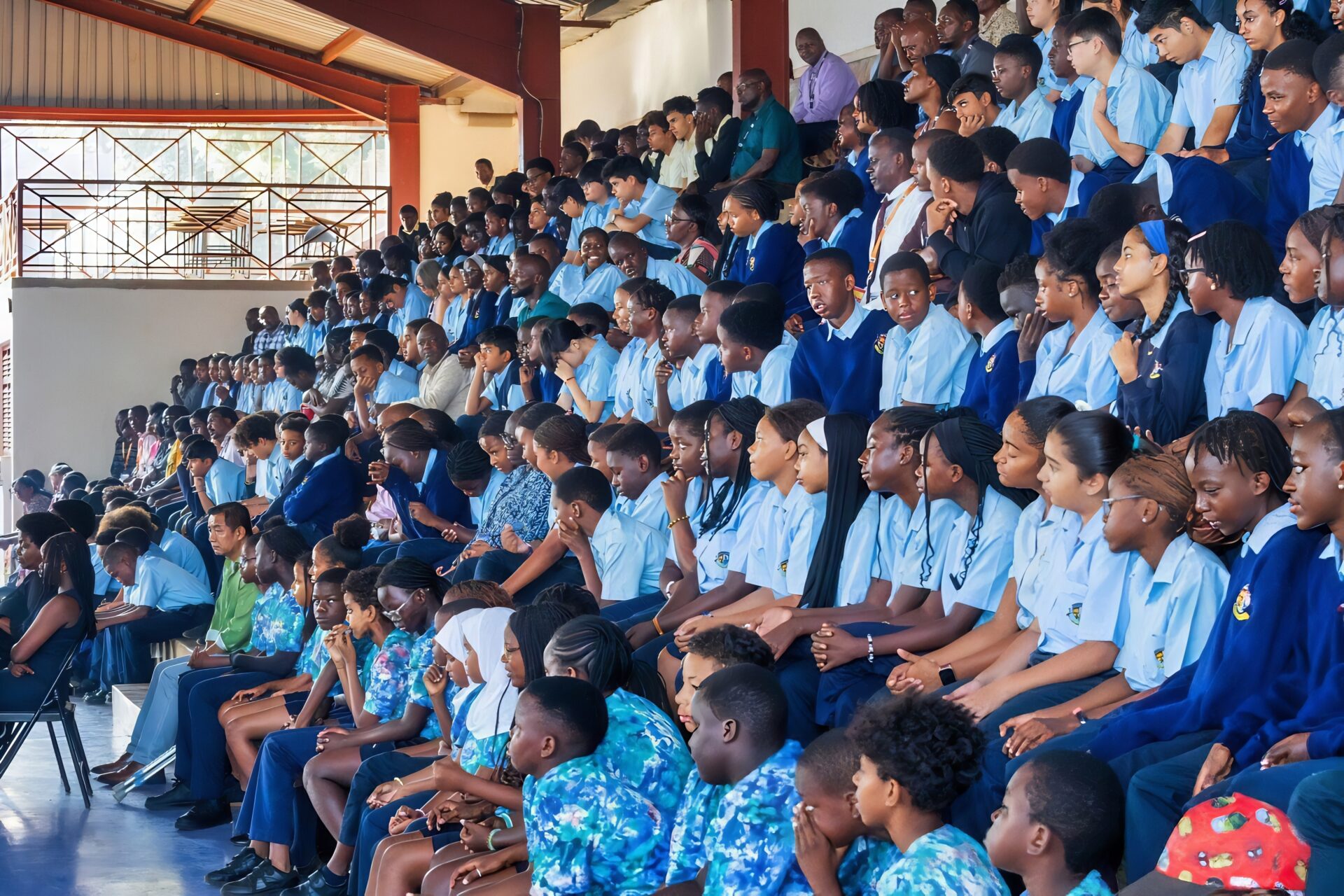
This sense of pride is evident in the way students rally around school-wide projects. For instance, a recent environmental drive led by student leaders saw the entire school come together to plant trees on campus and educate fellow students about sustainability. The initiative was so successful that it inspired neighbouring schools to follow suit, demonstrating how a united effort can ripple outward and inspire change beyond the school gates.
Similarly, past leaders have organised fundraising campaigns to support underprivileged communities in Uganda, rallying students to contribute books, uniforms, and other essentials. These efforts not only strengthened ties within the school but also reinforced the idea that Rainbow International School is part of a larger ecosystem—one where everyone has a role to play in creating positive change.
Strengthening Community Ties
Beyond fostering unity within the school, student leadership initiatives often extend into the wider community, bridging gaps between the institution and its surroundings. At Rainbow International School, leaders have consistently sought ways to engage with local communities, recognising that education is not confined to the classroom.
For example, one group of student leaders partnered with a nearby orphanage to organise monthly visits, during which students tutored children, organised games, and provided much-needed supplies. These interactions not only benefited the orphanage but also taught Rainbow International students the value of compassion and service. Another project involved collaborating with local artisans to host a craft fair on campus, showcasing traditional Ugandan craftsmanship while raising funds for community development projects.
These endeavours highlight the dual role of schools as both educational institutions and hubs of community engagement. By involving students in such initiatives, Rainbow International School ensures that its pupils grow up with a strong sense of social responsibility—a quality that will serve them well as future leaders in Uganda and beyond.
Conclusion: Unity as a Foundation for Success
The election at Rainbow International School Uganda exemplified how student leadership can inspire unity and community engagement. By encouraging collaboration, celebrating diversity, and fostering a sense of shared purpose, the school nurtures an environment where every student feels valued and empowered. These efforts do more than strengthen bonds within the school; they prepare young people to become active contributors to their communities and ambassadors of unity in a divided world.
As Uganda continues to navigate challenges ranging from ethnic tensions to socio-economic disparities, institutions like Rainbow International School play a vital role in equipping students with the skills and values needed to build bridges and drive positive change. By inspiring unity today, they lay the foundation for a brighter, more cohesive tomorrow—a testament to the transformative power of education and leadership.
Preparing Students for Global Challenges
In an era defined by rapid technological advancements, shifting geopolitical landscapes, and pressing global issues, the ability to adapt and lead is more critical than ever. At Rainbow International School Uganda, leadership roles such as those contested in the recent Head Boy and Head Girl election are not merely about managing school activities—they are stepping stones toward preparing students for the complex challenges of our interconnected world. By engaging in leadership initiatives, students cultivate resilience, critical thinking, and problem-solving skills—qualities that will enable them to navigate the uncertainties of the future while contributing meaningfully to society.
Adaptability: Thriving in a Dynamic World
One of the most valuable lessons leadership roles impart is adaptability. In today’s fast-paced world, where change is constant and unpredictable, the ability to pivot and respond effectively is indispensable. At Rainbow International School, candidates faced numerous challenges during their campaigns—from managing tight deadlines for manifesto preparation to addressing unexpected questions during debates. These experiences taught them how to remain calm under pressure, think on their feet, and adjust their strategies when necessary.
For instance, one candidate had to revise their campaign plan midstream after realising that certain proposals were not resonating with younger students. By seeking feedback and refining their approach, they demonstrated adaptability—a trait that mirrors the agility required in professional environments. Whether it’s responding to market shifts, embracing new technologies, or addressing unforeseen crises, adaptability is a skill that will serve these students well in any career path they pursue.
Resilience: Learning from Setbacks
Resilience is another cornerstone of effective leadership, and student elections provide ample opportunities to develop this quality. Not every candidate wins, and not every initiative succeeds—but the true test lies in how participants handle setbacks. At Rainbow International School, losing candidates were encouraged to view their experience as a learning opportunity rather than a failure. One runner-up reflected, “I may not have won, but I learned so much about teamwork, communication, and perseverance. Those lessons are worth far more than any title.”
This mindset reflects the kind of resilience needed to tackle global challenges such as climate change, poverty, and inequality. In Uganda, where young people face significant hurdles ranging from limited access to quality education to high youth unemployment rates, resilience is not just a desirable trait—it is essential for survival and success. By equipping students with the tools to bounce back from adversity, schools like Rainbow International ensure that they are prepared to confront life’s inevitable obstacles with courage and determination.
Critical Thinking and Problem-Solving: Tackling Complex Issues
As global citizens, today’s students inherit a host of complex challenges that demand innovative solutions. From mitigating the effects of climate change to addressing social inequality and navigating the ethical implications of technological disruption, tomorrow’s leaders must be adept at critical thinking and problem-solving. Leadership roles provide fertile ground for honing these skills, as students are tasked with identifying problems, proposing viable solutions, and rallying support for their ideas.
At Rainbow International School, past leaders have successfully addressed real-world issues through creative initiatives. For example, a former Head Boy spearheaded a tree-planting campaign to combat deforestation in Uganda, collaborating with environmental organisations and local communities to maximise impact. Another leader organised a fundraising drive to support girls’ education in rural areas, tackling gender inequality head-on. These projects required careful planning, resource management, and collaboration—skills directly transferable to addressing larger-scale global challenges.
Moreover, by encouraging students to engage with diverse perspectives and consider the broader implications of their actions, schools foster a mindset geared toward sustainable and equitable solutions. This approach aligns with the United Nations’ Sustainable Development Goals (SDGs), which emphasise the importance of collective action in creating a better world.
Empathy and Collaboration: Building a Better Future Together
Global challenges cannot be solved in isolation; they require empathy and collaboration across borders, cultures, and disciplines. Leadership roles teach students the value of working together toward common goals, even when opinions differ. During the election process at Rainbow International School, candidates learned to listen actively, negotiate respectfully, and build consensus—a microcosm of the diplomacy needed on the global stage.
For example, one candidate proposed organising a cross-school debate competition to address topics such as climate justice and digital literacy. The initiative brought together students from different institutions, fostering dialogue and mutual understanding. Such efforts underscore the importance of collaboration in driving meaningful change, whether at the local or international level.
By nurturing empathy and teaching students to appreciate diverse viewpoints, schools prepare them to become inclusive leaders who can bridge divides and unite people around shared objectives. This is particularly relevant in Uganda, where fostering unity amidst diversity remains a key priority for national development.
Equipping Students for Careers of the Future
Beyond personal growth, leadership experience provides students with practical skills that enhance their employability in an increasingly competitive job market. Employers worldwide seek individuals who can demonstrate initiative, teamwork, and the ability to manage projects effectively—all competencies cultivated through leadership roles.
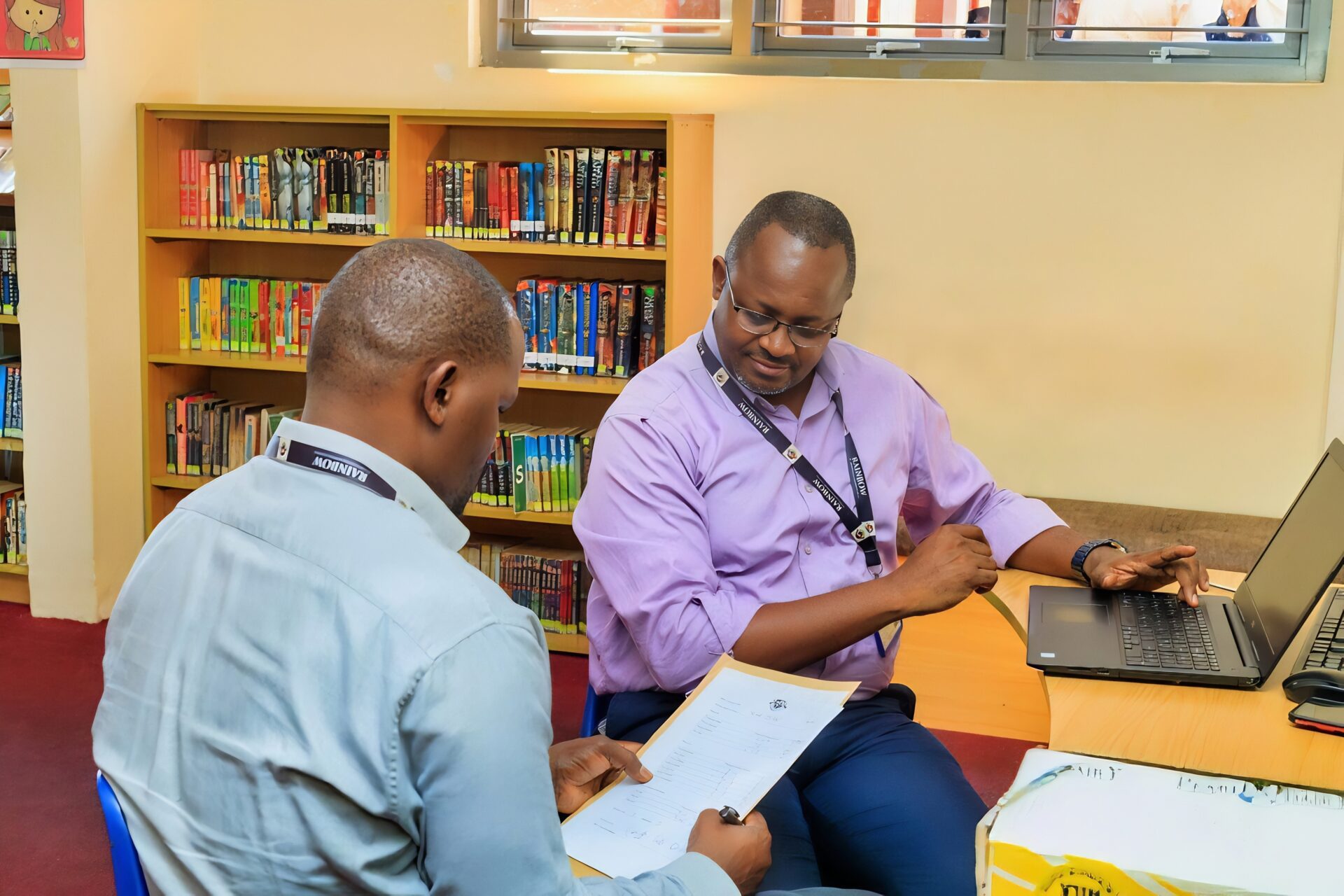
At Rainbow International School, students gain hands-on experience in areas such as event planning, public speaking, and conflict resolution—skills that are highly valued across industries. Furthermore, the emphasis on innovation and entrepreneurship encourages students to think outside the box and explore unconventional career paths. For example, a group of students recently launched a small business selling eco-friendly products, inspired by their involvement in a school-led sustainability project. Such ventures highlight the potential of leadership programmes to spark creativity and ambition, empowering students to carve out unique niches in the global economy.
Conclusion: Leaders for a Changing World
The leadership initiatives at Rainbow International School Uganda exemplify how education can serve as a foundation for addressing global challenges. By instilling adaptability, resilience, critical thinking, and empathy, the school ensures that its students are equipped to navigate the complexities of the modern world.
As Uganda—and indeed the entire globe—faces unprecedented challenges, institutions like Rainbow International play a vital role in shaping a generation of leaders capable of driving positive change. Through early exposure to leadership experiences, students learn not only to overcome obstacles but also to envision and create a brighter, more inclusive future. In doing so, they embody the spirit of global citizenship, proving that no challenge is insurmountable when approached with determination, creativity, and a commitment to collaboration.
Conclusion: A Brighter Future Starts Here
As Rainbow International School Uganda eagerly awaits the announcement of its newly elected Head Boy and Head Girl for 2025, one undeniable truth stands out: the true victors are not just the candidates themselves but every single student who participated in this transformative process. This election has been far more than a competition—it has been a celebration of empowerment, a testament to the potential within each young person, and a masterclass in leadership, democracy, and community building. From the courageous act of stepping forward as a candidate to the thoughtful deliberation behind casting a vote, every moment of this journey has reinforced the idea that greatness begins with small yet significant acts of courage.
Lessons That Last a Lifetime
The election at Rainbow International School offered students invaluable lessons that will resonate throughout their lives. For those who ran, it was an opportunity to develop confidence, articulate their vision, and learn the importance of resilience in the face of challenges. For voters, it was a chance to engage critically with ideas, weigh options, and understand the weight of their decisions. These experiences—rooted in real-world democratic principles—are sowing the seeds for tomorrow’s leaders, equipping them with skills such as critical thinking, collaboration, and accountability.
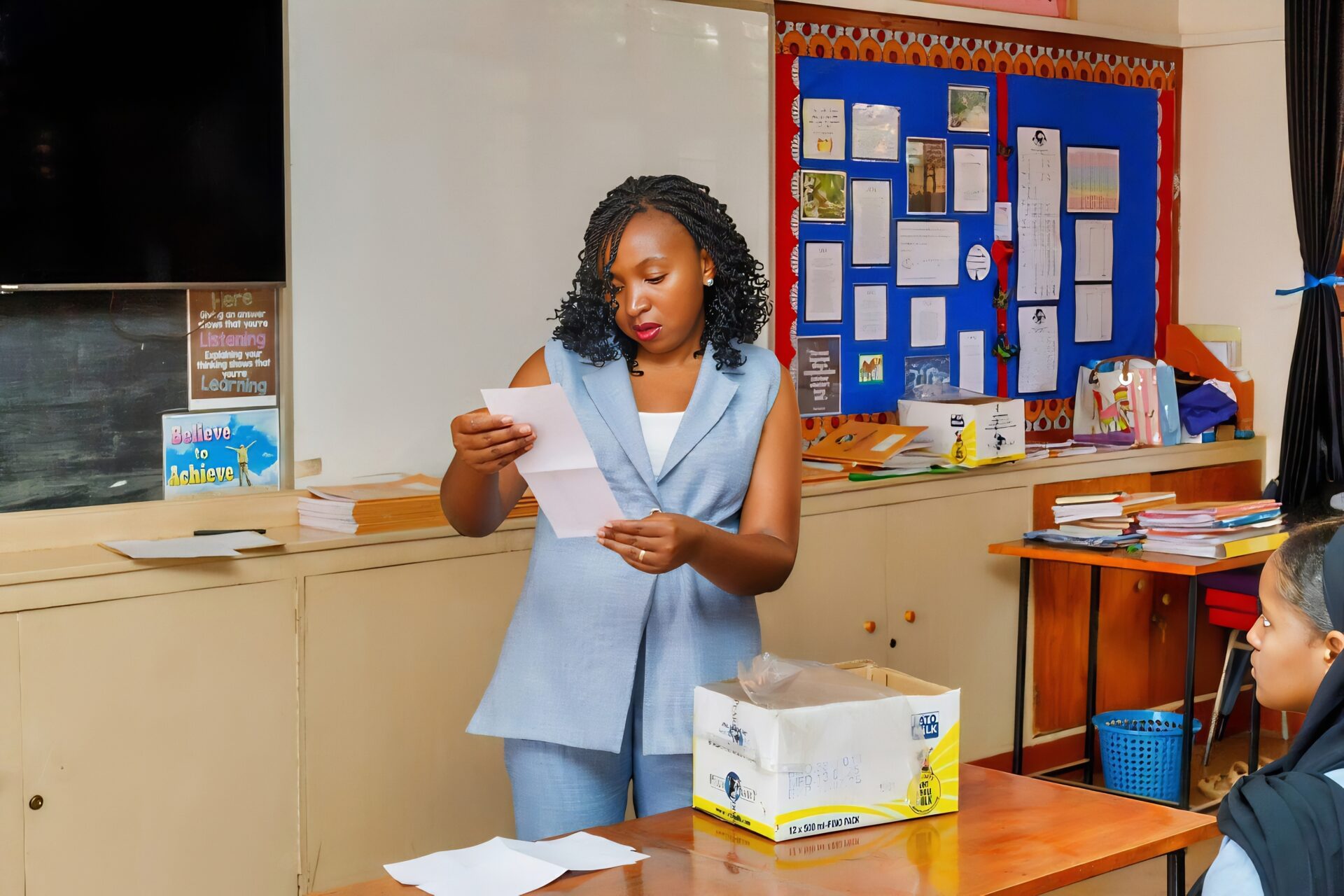
Moreover, the emphasis on representation and inclusivity during the campaign period highlighted the value of diverse voices. Candidates advocated for causes ranging from improved school facilities to mental health awareness, ensuring that no issue was overlooked. This focus on advocacy mirrors the kind of leadership needed to address Uganda’s pressing societal concerns, from educational inequality to environmental sustainability. By fostering a culture where every voice matters, Rainbow International School is nurturing leaders who will champion fairness, equity, and justice—not only within their school but in the wider world.
The Ripple Effect of Student Leadership
While the immediate impact of this election is felt within the walls of Rainbow International School, its influence extends far beyond. In Uganda, where youth constitute over 75% of the population, empowering young people to take charge is not just beneficial—it is essential for national progress. Schools like Rainbow International play a pivotal role in shaping active citizens who can contribute meaningfully to society. Whether through organising inter-house competitions that foster unity or spearheading community service projects that give back to local areas, these initiatives create ripples of positive change that reach far and wide.
For example, past student-led projects at the school have included fundraising efforts for rural schools, tree-planting drives to combat deforestation, and campaigns promoting gender equality. Such endeavours demonstrate how leadership roles inspire action that transcends individual achievement, creating a legacy of service and solidarity. As these young trailblazers grow into adults, they carry these lessons with them, becoming agents of transformation in their communities and beyond.
A Call to Action for Schools Everywhere
The success of Rainbow International School’s election underscores the profound impact that structured leadership programmes can have—not only on individual students but on society as a whole. Schools everywhere should take note of this model, recognising that investing in youth leadership is an investment in the future. When students are given platforms to express themselves, advocate for change, and collaborate with others, they become catalysts for progress. They learn that leadership is not about titles or accolades; it is about serving others, solving problems, and leaving the world better than they found it.
In Uganda, where the education system often grapples with limited resources and outdated curricula, incorporating leadership development into schools could be a game-changer. By prioritising programmes that teach civic responsibility, foster inclusivity, and encourage innovation, educators can prepare students to tackle the challenges of tomorrow—from climate change to economic inequality—with creativity and determination.
Celebrating Courage and Conviction
As the school community eagerly anticipates the results of the election, it is important to celebrate not just the winners but all the participants. Each candidate demonstrated remarkable bravery by putting themselves forward, while every voter exercised their right to shape the future of their school. These acts of courage remind us that leadership begins with believing in oneself and one’s ability to make a difference.
Indeed, the journey of these young leaders serves as a powerful reminder of what is possible when we invest in our youth. Their stories inspire hope—not just for Rainbow International School but for Uganda and the world at large. After all, the leaders of today are shaped by the opportunities they receive in their formative years. When we nurture their talents, amplify their voices, and trust them to lead, we lay the foundation for a brighter, bolder future.
Stay Tuned—and Keep Believing
Stay tuned for the announcement of the new Head Boy and Head Girl, whose leadership will undoubtedly steer the school toward even greater heights. But more importantly, keep cheering for every student who dared to dream, to speak up, and to believe in the power of change. Because in celebrating these young trailblazers, we are also celebrating the boundless potential of an entire generation.
After all, isn’t that worth every effort?
Announcing Our Student Leaders for 2025-2026!
After an inspiring and engaging election process, we are delighted to announce the newly elected student leaders of Rainbow International School Uganda. These remarkable individuals have demonstrated exceptional qualities of leadership, vision, and dedication throughout the campaign period. Their commitment to service and their ability to inspire others make them exemplary representatives of our school community.
Meet Your New Leadership Team
Head Girl: Isabella Nambi
Isabella has consistently shown herself to be a beacon of resilience and empathy. Her campaign focused on fostering inclusivity and enhancing mental health support within the school—a cause close to her heart. With her natural ability to connect with peers and her unwavering determination, Isabella is poised to lead with compassion and integrity.
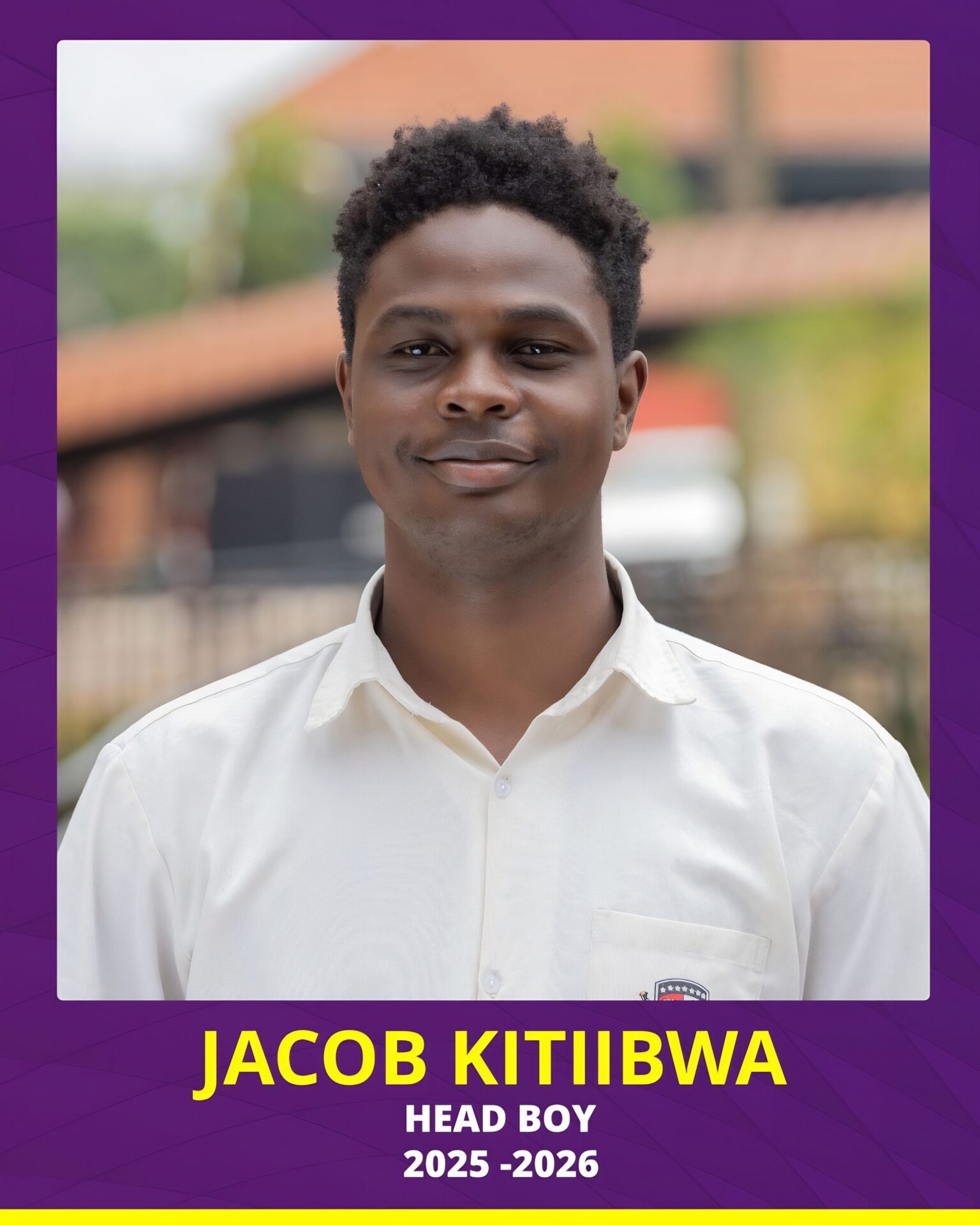
Head Boy: Jacob Kitiibwa
Jacob’s innovative ideas and charismatic approach captured the hearts of many during the election. A strong advocate for environmental sustainability, he proposed initiatives such as tree planting drives and waste reduction programmes. His analytical mindset and collaborative spirit ensure that he will be a driving force for positive change in the year ahead.
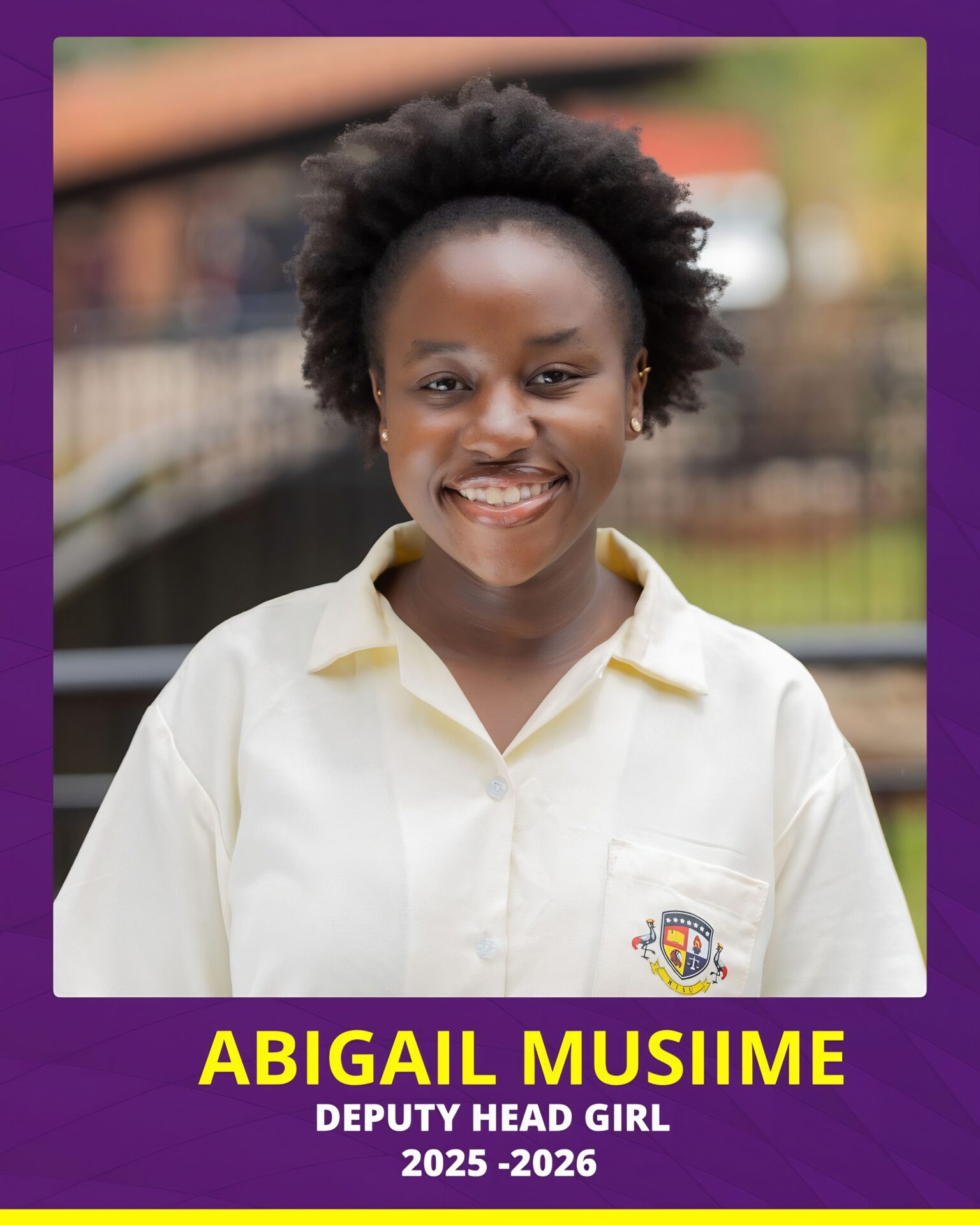
Deputy Head Girl: Abigail Musiime
Abigail’s organisational prowess and creative problem-solving skills set her apart as a standout candidate. She championed projects aimed at improving extracurricular opportunities, ensuring every student has a platform to shine. As Deputy Head Girl, Abigail will bring energy, enthusiasm, and a fresh perspective to the leadership team.

Deputy Head Boy: Vivek Bhansali
Vivek’s passion for academic excellence and community engagement made him a popular choice among voters. He emphasised the importance of peer mentoring and cross-cultural understanding, reflecting Rainbow International School’s commitment to diversity and unity. His calm demeanour and strategic thinking will undoubtedly complement the team’s dynamic.
A Legacy of Leadership
At Rainbow International School, student leadership is more than just a title—it is a tradition of excellence and service. The newly elected leaders join a long line of trailblazers who have used their roles to drive meaningful change within the school and beyond. From organising inter-house competitions to spearheading charity fundraisers, past leaders have left indelible marks on the school community.
This year’s cohort continues that proud legacy. Each member of the leadership team brings unique strengths and perspectives, ensuring a well-rounded approach to addressing the needs of the student body. Together, they embody the values of responsibility, collaboration, and innovation that define Rainbow International School.
Looking Ahead
As they step into their roles, Isabella, Jacob, Abigail, and Vivek are committed to upholding the high standards set by their predecessors. They aim to tackle pressing issues such as environmental sustainability, mental health awareness, and equitable access to resources—all while fostering a sense of unity and belonging among students.
We look forward to seeing how their visions unfold over the course of the academic year. Whether through organising cultural festivals, leading community service projects, or advocating for policy changes, these young leaders are sure to leave a lasting impact on our school community.
Stay Tuned for Updates
Congratulations once again to Isabella, Jacob, Abigail, and Vivek on this well-deserved achievement! We are confident that their leadership will inspire not only their peers but also future generations of students at Rainbow International School.
Stay tuned for more updates as they embark on this exciting journey. Together, let’s celebrate their potential and support them in creating a brighter, bolder future for everyone at Rainbow International School!
- The NUP Corruption Allegations: A Sign of a Deeper Political Failure? - 8 September 2025
- Ugandan Politics Exposed: The Illusion of Choice and Managed Opposition - 6 September 2025
- Bobi Wine & NUP Corruption: The Inside Story of Uganda’s Opposition Crisis - 5 September 2025

